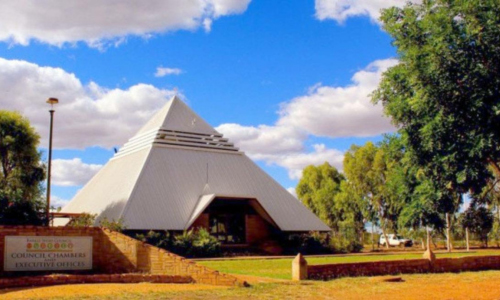16 Days of Activism: Barkly Regional Council
On Day 7 of the 16 Days of Activism, we spotlight Barkly Regional Council’s critical work, including safe houses, support packages, and DFSV (domestic, family and sexual violence) prevention education.
Barkly Regional Council are funded by the Northern Territory Government to run the Elliot and Ali Curung safe houses. The Safe Houses provide 24/7 emergency accommodation for those impacted by domestic, family and sexual violence, as well as outreach support for at-risk women and children.
Barkly Regional Council are also funded to provide flexible support packages to victim survivors of domestic, family and sexual violence. These packages aim to improve the safety, wellbeing and independence of victim survivors. The flexible packages allow individuals to purchase a range of tailored supports based on their case management or safety plan, including counselling, education, employment assistance, financial assistance, transport, housing and other practical supports.
A spokesperson from the Council shared their insights about the key role education and communication plays in preventing domestic, family and sexual violence.
Q: What action are you taking to try to stop or respond to domestic, family and sexual violence?
The best thing we can do is communicate with community members and staff, so people know that domestic violence is not accepted.
Q: How would you encourage others to take action to stop DFSV?
It’s about communicating with the community and even your family to get the message across, because many people don’t go to forums or meetings. Word of mouth is important. And, of course, you have to report domestic violence and educate people about reporting.
Some remote communities don't have the luxury of police arriving straight away – they're three, four, five hours away – so prevention and getting the message out there is important. We have to encourage people to help one another and support each other.
It’s also important to get out to community and provide forums with interpreters or in plain English. It’s about getting out there and talking to people face to face. Not everyone can read a poster.
Q: How would you encourage others to take action to stop DFSV?
The most important thing is to educate people in language they can understand, to get out there and visit communities and be on the ground, and to educate people about mandatory reporting.
This interview has been edited for brevity and clarity.
Support
If you or someone you know is experiencing domestic, family or sexual violence and is in immediate danger, please call 000. For further support, contact the 24hr helplines or support services on the Northern Territory Government website. Other support services and helplines for Aboriginal or Torres Strait Islander people include:

